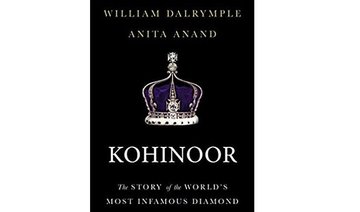“The Open Door” by Latifa Al-Zayyat is an incredible novel that follows the lives of the Sulayman family during the 1940s and 1950s in Egypt. At a time of Egypt’s political emergence as a completely sovereign nation, Al-Zayyat’s book follows the lives of ordinary Egyptian citizens who navigate through political and social changes as the Suez Crisis looms, their lives intertwined with the politics that will change their futures and shape their fates.
Al-Zayyat died in 1996, but is known as a transformative writer and a revolutionary for social and political change. “The Open Door,” which was originally published in 1960 in Arabic, is considered her magnum opus and was awarded the Naguib Mahfouz Medal for Literature in 1996. The book was later translated into English by Marilyn Booth in 2000 and a new edition was printed this year by Hoopoe Press.
The reader is first introduced to the scene of an unusual morning in Cairo in 1946. A demonstration of 40,000 has just taken place in Ismailiya Square and the streets are buzzing. Egyptians want the English gone and they are not afraid to show it. As one passerby on the street says to another, “this is a new stage of national consciousness.”
But in the home of Mohammed Effendi Sulayman, they are not talking about the demonstration. He sits in his chair reading the Qur’an and waiting for his son, Mahmoud, to return. Layla is 11-years-old at the time and is also waiting for her brother, who joined the demonstration despite his father’s disapproval, to return.
Once Mahmoud returns, wounded and bleeding, Layla runs to school to tell her friends. “The English got him. They hit him because he is a nationalist. Because he is a hero,” she tells them.
She is the envy of every girl that morning, but that soon fades, as does everything with time.
The reader follows Layla as her growth and transformation takes place alongside Egypt’s. Both are struggling for sovereignty. Despite her dreams of ridding the country of the English herself, of carrying a gun and going out to fight with the boys, her mother and father have other ideas, as does Egyptian society.
Once Layla hits puberty, her life changes. While once she was allowed to do and say anything, she is not anymore. She is told how to sit, how to speak, how to act and how to compose herself. While her brother grows into a man and is allowed his own freedom and space to make decisions, Layla loses her ability to do so completely. “She grew to the realization that to reach womanhood was to enter a prison where the confines of one’s life were clearly and decisively fixed.” Yet, despite her confines, she feels stronger than ever, her mind and body growing to embolden herself.
As Layla’s life moves forward, she dabbles in emotions such as love and encounters her first relationship. The reader follows her life at university and the way she is molded by her friends, the university’s climate, political change and her brother’s life. Through all of this, her demeanor changes. Her outlook on life teeters between optimism and misery and settles there. She resides herself to a life of unhappiness when she realizes that her life will always be controlled by someone or something other than herself. She finds out that real life “was so empty of poetry.”
Al-Zayyat’s book feels timeless, yet it is specific about the political timeframe. The way she writes about society and women is relevant today as women continue to struggle in the world.
The momentum of the book builds steadily as Egypt and Layla come to a moment in time that is theirs to grasp or give away. Soon the reader discovers that the winds of change are not fanned by nature but by the mouths of Egyptian citizens who know the control of their country is in their hands.
Al-Zayyat’s book is profound. It consistently brings into question the idea that women are taught to submit to society and then challenged to be their own person within their confines. It shows how repression can ruin lives and steal away courage and strength. It reveals that Egypt and Layla are one and the same, that abuse and influence treat any and everything the same.
Al-Zayyat dissects what it is to be a woman in the world. Her main character is every girl, across countries and cultures. She has finally exposed society’s experiment on women. However, it is not just an experiment on women, it is an experiment on imperialism and the results of resistance. Like Layla, Egypt is growing into its own, constantly changing and evolving with the people who involve themselves with it. It is influenced, strengthened and sometimes left helpless by the people who abuse it.
Immediately, there are visible parallels with the Arab Spring and with stories of its impact on Egyptians, such as in Basma Abdel Aziz’s “The Queue” and Bassem Youssef’s “Revolution for Dummies.” The scenes of political oppression and the pushback of the people are one and the same.
With the publication of “The Open Door,” Al-Zayyat was recognized as a revolutionary for social change and for women’s liberation. At the time her book was published, there were a host of women from whom she could draw inspiration, but to write about societal freedoms for women in a controlled patriarchal society and to write of female characters coming into their own by fighting social and political repression by finding their voices and joining conversations about the future of their country had not been done before.
Al-Zayyat herself lived through the crisis and, therefore, it is speculated that the book is the result of what she observed with her very own eyes. She was an activist for human rights and freedom of expression and lived during a time of great change in Egypt. She dug her feet into the sand to document the change and managed to stay standing until the end, as an Egyptian and as a woman with a voice equal to any other citizen.


Book Review: Fanning the winds of change in Egypt
Book Review: Fanning the winds of change in Egypt

What We Are Reading Today: ‘The Writer’s Room’ by Katie Da Cunha Lewin

Virginia Woolf famously wrote in “A Room of One’s Own” that “it is necessary to have 500 a year and a room with a lock on the door if you are to write fiction or poetry.”
Writers have worked in all kinds of places, from garrets and sheds to boarding houses, bathrooms, and even while on the move.
What is it that fascinates us about the writer’s room? This book takes readers inside literature’s creative spaces to explore this tantalizing question.
© 2026 SAUDI RESEARCH & PUBLISHING COMPANY, All Rights Reserved And subject to Terms of Use Agreement.














